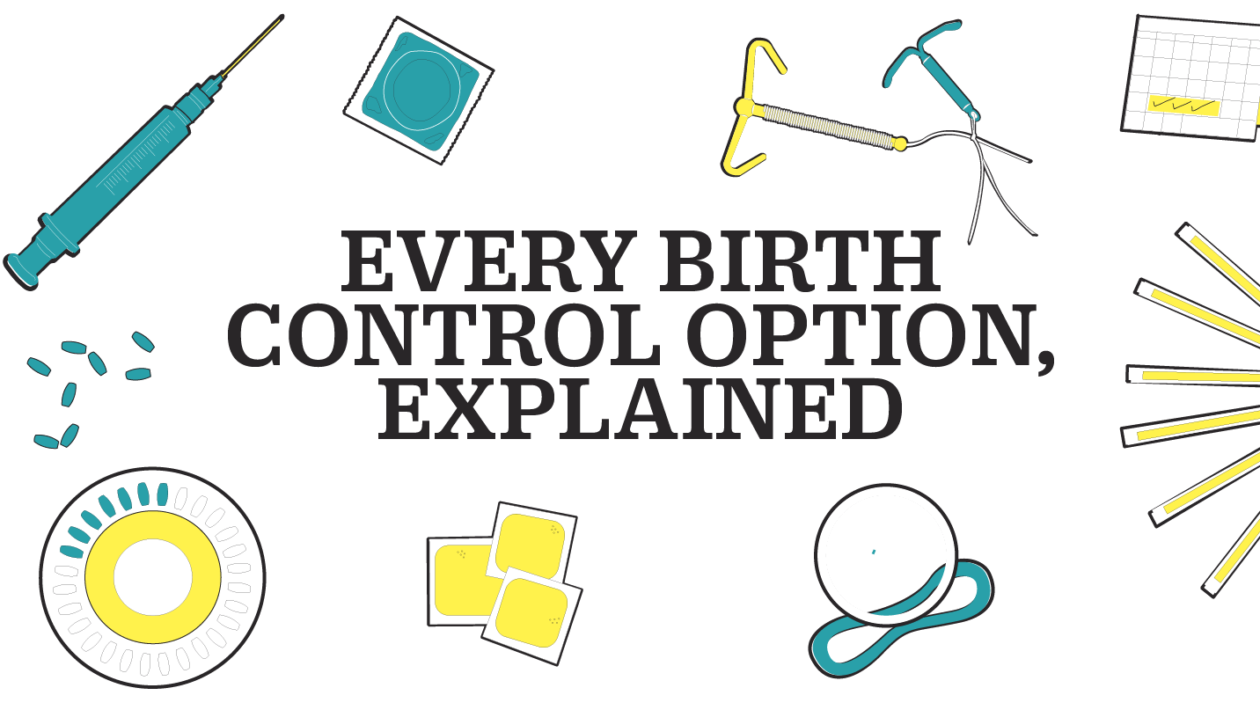Contraception, best known as birth control, is a method or set of techniques applied to control pregnancy. Notably, each birth control option presents a unique prospect of effectiveness. However, none of these options is 100 percent effective or reliable. The effectiveness of some birth control techniques is entirely dependent on how they are used.
With the many contraception methods available in the market today, identifying the best option can be quite daunting. According to birth control experts, the contraceptive method that best suits you depends on a wide range of factors, including your health and circumstances. This article helps you decide on the best form of contraception by exploring the pros and cons of each option.
- Barrier Contraceptives
Barrier contraception functions by preventing sperm from coming into contact with the ovum or egg. These methods include female condoms, male condoms, caps, and diaphragms. If used correctly, condoms are about 98 percent reliable. On the other hand, the cervical caps are 71 percent effective, while the reliability of diaphragms may range from 92 to 96 percent, depending on usability.
Pros
- Condoms provide the additional benefit of protecting one from sexually transmitted infections.
- There are no medical side effects or risks.
- Easily accessible.
Cons
- Used every time one is having sex.
- Barrier contraceptives can make sex feel less spontaneous.
- The risk of getting pregnant increases if the condom comes off or splits.
- Caps and diaphragms must be fitted for use.
- Oral Hormonal Contraceptives
Oral hormonal contraceptives, also known as birth control pills, rely on estrogen and progestin hormones to prevent pregnancy by controlling ovulation. There are two forms of birth control pills; the progestogen-only pill and the combined oral hormonal pill.
Progestogen-Only Pill (POP)
The progestogen-only pill, popularly known as the mini pill, contains the progestogen hormone. Generally, POPs function by thickening the cervical mucus to inhibit the sperm from passing through the uterus to the egg. Unlike the combined oral hormonal pill, POPs do not contain estrogen.
Pros
- Fewer side effects and medical risks.
- Safe to use for all women, especially those above 35 years.
- Can be used when breastfeeding.
- Helps in controlling the premenstrual symptoms and painful periods.
- Suitable for women who cannot use the combined oral contraceptive.
Cons
- Triggers irregular periods.
- You must be careful to take the pill at the same time every day.
- Using POPs can initiate small ovarian cysts.
Combined Oral Contraceptive (COC)
Combined oral hormonal pills contain both progestogen and estrogen hormones. The variations of COCs contain varying amounts of these two hormones. Women with any medical condition are advised to avoid combined oral contraceptives.
Pros
- Enhances less painful, regular, and lighter periods.
- Minimises the risk of ovarian, uterine, and colon cancers.
- Lowers the risk of ovarian cysts and fibroids.
- Highly effective.
Cons
- Higher risk of breast cancer.
- Only suitable for healthy women.
- Causes temporary side effects, including breast tenderness, mood swings, and headaches.
- Long-Acting Reversible Contraceptives (LARC)
LARCs are contraception methods used to prevent pregnancy for a relatively long duration without demanding any action on the user’s part. Such methods include contraceptive injections, contraceptive implants, intrauterine devices (IUDs), and intrauterine systems (IUS).
Pros
- Highly effective.
- You do not have to apply a LARC every time you have sex.
- IUDs do not have hormones. No medical risks or side effects involved.
- Lasts longer.
- Cost-effective.
- They are reversible upon removal.
Cons
- Your periods may become heavier and irregular.
- Triggered side effects for some women.
- Discomfort on having a coil put in for years.
- Increased risk of cervical and breast cancer for contraceptive injections.
- Natural Contraception
Natural contraception, also known as natural family planning, involves monitoring your menstrual cycle to identify when you are fertile and when not. This allows you to have sex when infertile.
Pros
- No medical risks or side effects.
- Suitable for everyone.
- Absolutely free.
Cons
- Not as effective as the other methods.
- Highly unreliable for women with irregular periods.
- Sterilization
These are permanent methods of contraception that involve a medical operation to disable you from reproducing. This means permanent prevention of pregnancy. Sterilization methods include vasectomy and laparoscopic for men and women, respectively.
Pros
- Highly effective.
- The method is permanent.
Cons
- Very difficult to reverse.
- Vasectomy is not effective immediately. Other forms of contraception should be applied during this duration.
- Anesthetics during female sterilization come with some medical risks.




